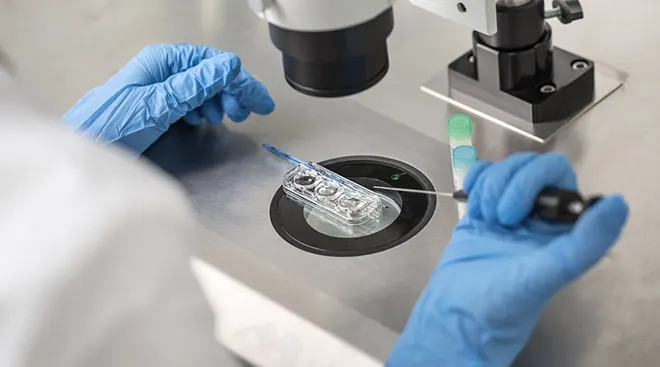This Hormone May Help Women With a History of Miscarriage, Study Says
Giving progesterone to pregnant women with a history of miscarriage may increase their chances of having a baby, new research suggests.
The study used the PRISM trial, the largest ever trial of its kind, involving 4,153 women who had early pregnancy bleeding. The women were treated at 48 hospitals across the UK and on average were about 31 years old. The women were split into two groups—one which was given progesterone and another which was given a placebo.
"Several small studies have suggested that administering progesterone, a hormone essential for maintaining a pregnancy, may reduce the risk of miscarriage in women presenting with early pregnancy bleeding,” says Dr Adam Devall, senior clinical trial fellow at the University of Birmingham. “The PRISM trial was undertaken to answer a very important research question—whether progesterone given to pregnant women with threatened miscarriage would increase the number of babies born after at least 34 weeks of gestation when compared with a placebo.”
While the research didn’t show “statistically strong enough evidence” to suggest progesterone could help all women who are suffering early pregnancy bleeding to have a baby, they did show that the hormone benefitted those who had early pregnancy bleeding and had previously suffered a miscarriage.
Researchers noticed a 4 percent increase in the number of babies born to women in the study who were given progesterone and had previously had one or two miscarriages compared to those given a placebo. The benefit was even greater for women who had previous recurrent miscarriages (three or more), with a 15 percent increase in the live birth rate in the progesterone group compared to the placebo group.
"The role of progesterone in women with early pregnancy bleeding has been studied and debated for about 60 years, however what we have previously lacked is high quality evidence,” comments Arri Coomarasamy, professor of gynecology at the University of Birmingham. "The largest study before the PRISM trial had less than 200 participants, whereas our study had more than 4,000 participants and was of very high quality, which means we can be confident in our findings.”
Please note: The Bump and the materials and information it contains are not intended to, and do not constitute, medical or other health advice or diagnosis and should not be used as such. You should always consult with a qualified physician or health professional about your specific circumstances.
Navigate forward to interact with the calendar and select a date. Press the question mark key to get the keyboard shortcuts for changing dates.



















































